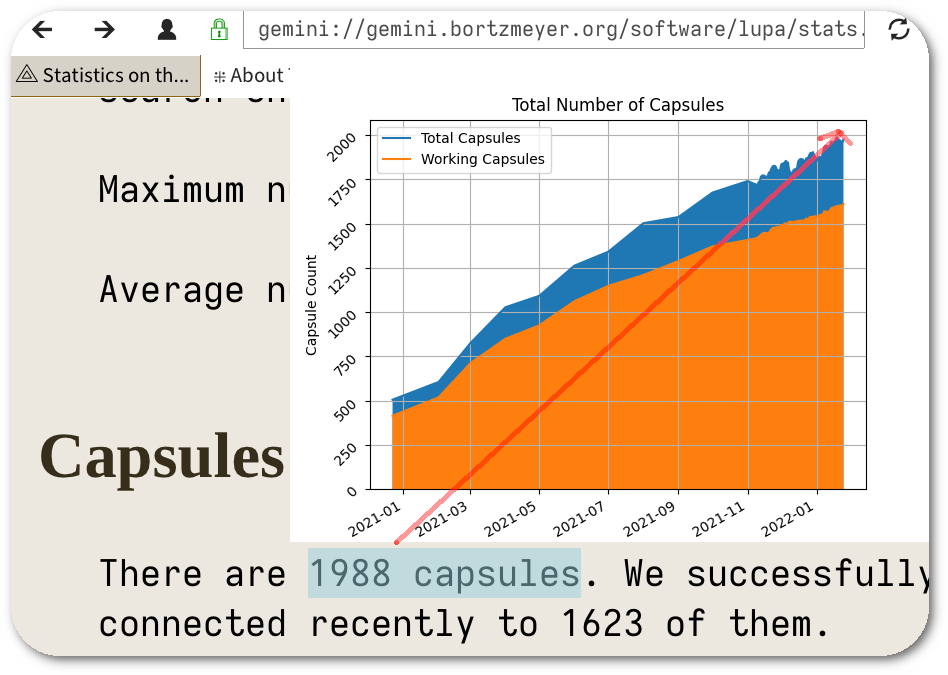
960ac24856eaabb890860e1d2d80665e
Gemini Growing (errata: I said 2016 instead of 2006 near the start of this video)
Creative Commons Attribution-No Derivative Works 4.0
BASED on Stéphane Bortzmeyer's Gemini stats for Lupa, which are charted here (visually), as well as our own (code for the calculations is in Git), Gemini keeps growing at a linear pace. Yesterday and the day before that we served 43,000 pages over gemini:// and the number of capsules (equivalent of sites/domains) will soon stand at 2,000 (known ones, including about 350 unreachable ones).
"Putting all those walled gardens and paywalls aside, there's consolidation around just one Web browser (or browser 'family') and the Web is far too complex and too proprietary due to endless expansion, topping it all off with DRM."Our main milestone, which was reached around 3PM today, is exactly 39,000 pages being in our capsule. For 16 years that's almost 2,500 per year. Our efforts to expand beyond the Web were partly motivated by the observation of the Web's demise/decline, at least as an open platform. Putting all those walled gardens and paywalls aside, there's consolidation around just one Web browser (or browser 'family') and the Web is far too complex and too proprietary due to endless expansion, topping it all off with DRM. It's becoming little but a transport layer for encrypted binaries, where the purpose of the encryption isn't security but distrust of Web users, presuming people are just "pirates" who should be reduced to passive, mindless "consumers".
In order to be around for decades to come various Web sites will need to seriously consider their life beyond (or after) the Web, which nowadays exists mostly for large corporations that steer/decide/determine its direction. World Wide Web might be "the next Flash". ⬆
